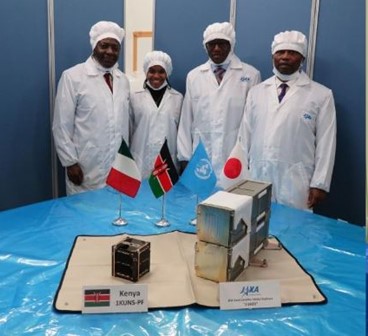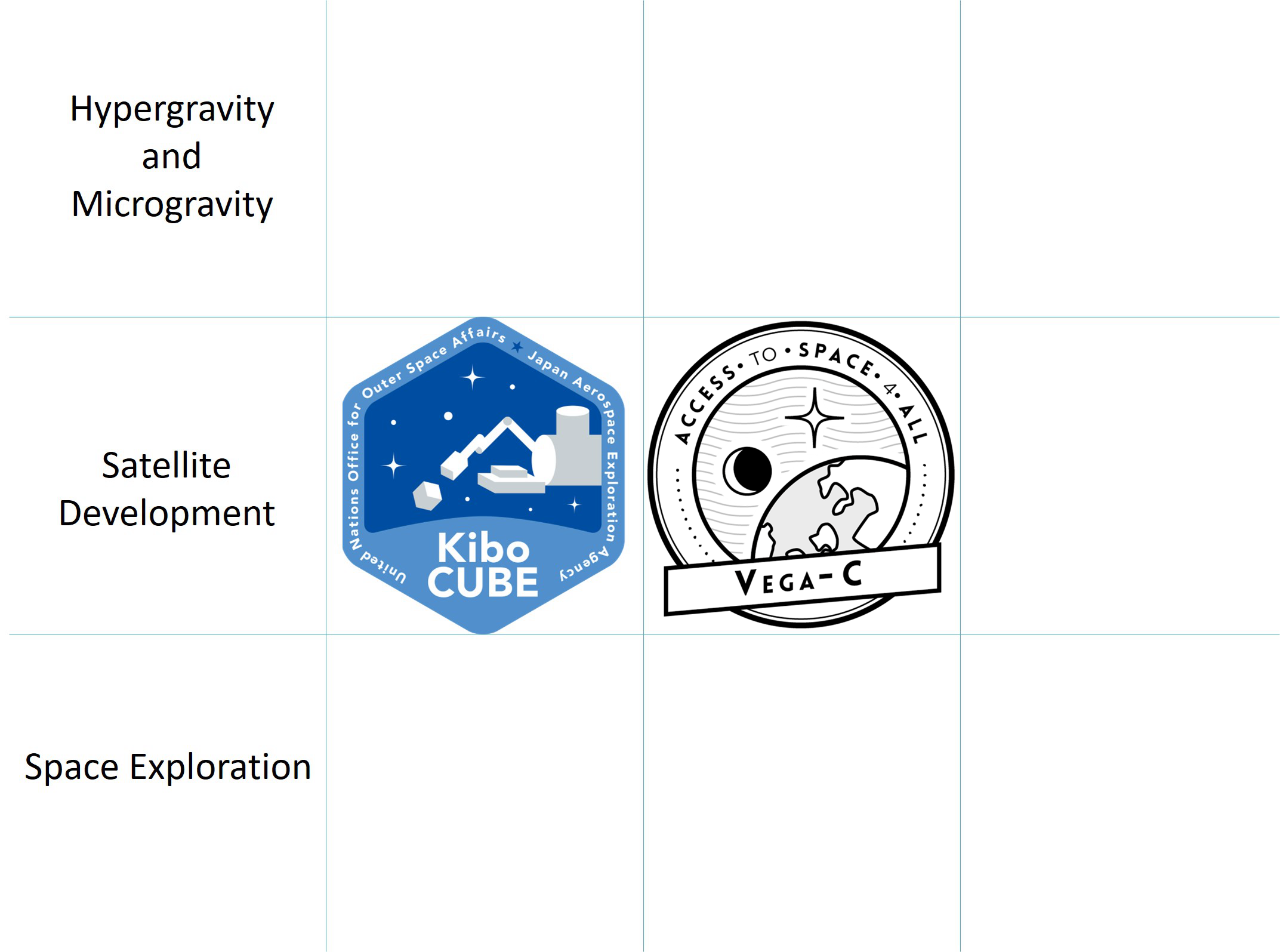University of Nairobi

1KUNS Team is delivering the CubeSat Credit: Mwangi
"This is a great opportunity for the University of Nairobi (UoN) to continue its nanosatellite capacity building, which is a huge positive for the nascent space sector in Kenya. As a consortium, we are very grateful to UNOOSA and Avio S.p.A. for granting us the opportunity to launch a 3U CubeSat, free of charge. This will go a long way in enhancing capacity not only at UoN, but in Kenya in general. The NaSPUoN-0GPM2030 nanosatellite will herald a new level of space utilization by Kenya and will include an earth observation mission to demonstrate and serve diverse local earth imagery needs. This opportunity cements the great impact of our collaboration with the Kenya Space Agency, University of Arizona and Space Trust." Mwangi Mbuthia, Project Coordinator of 1KUNS.
AWARDS
KiboCUBE
The first satellite of Kenya, 1KUNS-PF has been deployed from the International Space Station on 11 May 2018 thanks to KiboCUBE. The initial goal of the team from the University of Nairobi was to design, develop, and operate a CubeSat-class satellite to test technologies it has developed for the future launch of a larger earth observation satellite and hoped to apply data acquired from its CubeSat to the monitoring of agriculture and coastal areas. 1KUNS-PF was deployed in orbit on 11 May 2018 and re-entered the atmosphere in June 2020.
Vega C
UNOOSA and Avio have selected a consortium led by the University of Nairobi in Kenya, joined by the University of Arizona from the United States of America and the non-profit organization Space Trust as the first awardee of the 'Accessing space with Vega C' programme. The "NaSPUoN-0GPM2030" satellite is a 3U class CubeSat aiming at building capacity in Kenya by bringing together international partners with existing technical capabilities. The satellite will be developed at the University of Nairobi supported by the University of Arizona and Space Trust.
News
- UNOOSA and Avio select team from University of Nairobi for CubeSat launch opportunity using the Vega C launcher (10 February 2023)
- The University of Nairobi, University of Arizona and Space Trust partner in Space Peace Mission 2030 (10 January 2022)
- The University of Nairobi wins Kenya Space Agency research grant (18 November 2021)
- Kenya Steps Into Space with First Satellite Launch (15 May 2018)
- Kenya's 1KUNS-PF CubeSat ready for launch by Japan (January 2018)
- The University of Nairobi Hands the First KiboCUBE CubeSat over to JAXA Under UNOOSA-JAXA KiboCUBE Programme (19 January 2018)
Activities
- Presented in UNOOSA Access to Space for All Expert Meeting ( pdf & video 1:47:03-2:03:19 ) (16 May 2023)
- The University of Nairobi team presented their project at the 72nd International Astronautical Congress (15 October 2021)
- The University of Nairobi presented their project at the United Nations Expert Meeting on Human Space Technology (5 December 2018)
Publications
- Nano-Satellite Platform for the University of Nairobi, BIRDS Project Newsletter - No. 72 page 32-43, Jan 2022
- J. Mwangi Mbuthia, Heywood Ouma, 1KUNS-PF: 1st Kenyan University NanoSatellite-Precursor Flight
- Arena, Lorenzo; Agostini, Livio; Calisti, Luana; et al, A university Nanosatellite for student international cooperation through hands-on education
- F. Santoni, F. Piergentili, M.Mbuthia, S.Pirrotta, Italy-Kenya University Nano Satellite (IKUNS), The 4th UNISEC-Global Meeting - Kamchia, October 18-23, 2016
- John Kimani, Kenya's Micro-Satellite Program "1st Kenyan University Nanosatellite Precursor Flight" (1KUNS-PF), UN/IAF WS 30 September 2019
- Mwangi Mbuthia, Kenya's Venture into Outer Space Exploration, United Nations Expert Meeting on Human Space Technology, 5 December 2018 VIC, Vienna, Austria
- Vivian Otieno, Lorenzo Frezza, Armando Grossi, et al., 1KUNS-PF after one year of flight: new results for the IKUNS programme, IAC 2019, Washington D.C.
- Mutugi Kiruki, Nano-Satellite Platform for the University of Nairobi, BIRDS Project Newsletter - No. 72 page 33-43









